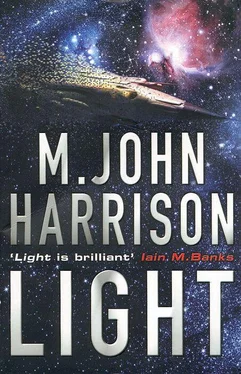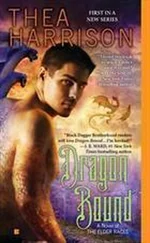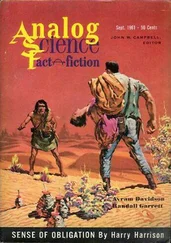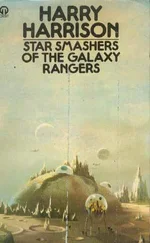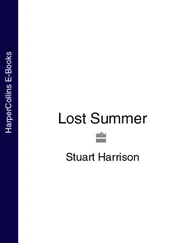'Christ,' said Meadows in a thick voice. 'Ah.'
Kearney pulled him all the way over the desk, across the floor and out of the door. At the same time the lift arrived and Sprake got out.
'I saw it, I saw it,' Kearney said.
Sprake showed his teeth. 'It's not here now.'
'Get a fucking move on. It's closer than ever. It wants me to do something.'
Together they bundled Meadows into the lift and down three floors. He seemed to wake up as they dragged him across the lobby and out to the canal bank. 'Kearney?' he said repeatedly. 'Is that you? Is there something wrong with me?' Kearney let go of him and began kicking his head. Sprake pushed his way between them and held Kearney off until he had calmed down. They got Meadows to the edge of the water, into which they dropped him, face down, while they held his legs. He tried to keep his head above the surface by arching his back, then gave up with a groan. Bubbles came up. His bowels let go.
'Christ,' said Kearney reeling away. 'Is he dead?'
Sprake grinned. 'I'd say he was.' He tilted his head back until he was looking straight up at the faint stars above Walthamstow, raised his arms level with his shoulders, and danced slowly away north along the towpath towards Edmonton.
'Urizen!' he called.
'Fuck this,' said Kearney. He ran in the opposite direction, all the way to Lea Bridge, then got a minicab to Grove Park.
Every murder reminded him of the Shrander's house, which in a sense he had never left. His fall had begun there, his deeply fallen knowledge imprisoned him there. In another sense, the Shrander's pursuit of him in succeeding years was that knowledge: it was the constant fall into the awareness of falling. When he killed, especially when he killed women, he felt released from what he knew. He felt for an instant as if he had escaped again.
Bare grey dusty floorboards, net curtains, cold grey light. A dull house on a dull street. The Shrander, intact, irrefragable, enduring, stood in its upper room gazing magisterially out of the window like the captain of a ship. Kearney ran away from it because, as much as anything, he was frightened of the coat it wore. He was frightened of the smell of wet wool. That smell would be his last unfallen sensation.
The beak opened. Words were spoken. Panic-it was his own-filled the room like a clear liquid, an albumen or isinglass so thick he was forced to turn and swim his way through the open door. His arms worked in a sort of breaststroke while his legs ran beneath him in useless slow motion. He stumbled across the landing outside and straight down the stairs-full of terror and ecstasy, the dice in his hand-into the rainy streets, looking for someone to kill. He knew he wouldn't be saved unless he did. A kind of lateral gravity was in his favour: he fell all the way from the Shrander's house towards the railway station. To travel, he hoped, would be to fall away from falling, at some more acceptable, some more merciful angle.
It was late on a wet winter afternoon. The trains were reluctant, overheated, empty. Everything was slow, slow, slow. He caught a local, grinding its way out of London into Buckinghamshire. Every time he looked down at the dice in his hand, the world lurched and he had to look away. He sat there sweating until, two or three stops beyond Harrow-on-the-Hill, a tanned but tired-looking woman joined him in the carriage. She was dressed in a black business suit. In one hand she carried a briefcase, in the other a plastic Marks Spencer carrier bag. She fussed with her mobile phone, leafed through a self-help book which seemed to be called Why Shouldn't I Have the Things I Want? Two stations further north, the train slowed and stopped. She got to her feet and waited for the door to open, staring at the darkening platform, the lighted ticket office beyond. She tapped her foot. She looked at her watch. Her husband would be waiting in the car park with the Saab, and they would go straight on to the gym. Up and down the train, other doors opened and closed, people hurried away. She looked nervously right and left. She looked at Kearney. In the overheated emptiness, her journey pulled out like chewing gum, then snapped.
'Excuse me,' she said. 'They don't seem to be letting me out.'
She laughed.
Kearney laughed too.
'Let's see what we can do,' he said.
Five or six thin gold chains, each bearing either her initial or her Christian name as a pendant, clung to the prominent tendons of her neck. 'Let's see what we can do, Sophie.' As he reached down to touch with his fingertip the make-up caked in the faint blonde down at the corner of her mouth, the train pulled slowly away. Her shopping had spilled when she fell. Something-he thought it was a shrink-wrapped lettuce-rolled out of the carrier bag and along the empty carriage. The platform slid backwards and was replaced by black night. The doors had never opened.
Kearney, expecting discovery at any moment, lived from newscast to newscast: but there was no mention of Meadows. The upper half of a body recovered from the Thames near Hungerford Bridge proved to be decomposed, and a woman's. A second Nigerian boy was found dead in Peckham. Apart from these incidents, nothing. Kearney regarded the screen with growing disbelief. He couldn't understand how he had got away with it. No one likes a venture capitalist, he found himself thinking one night, but this is ridiculous.
'And now,' said the anchorwoman brightly, 'sport.'
He was less afraid of discovery, he found, than of the Shrander itself. Would Meadows be enough to keep it at bay? One minute he was confident; the next he had no hope. A noise in the street outside was enough to send his heart rate up. He ignored the phone, which was often ringing two or three times in a morning. Messages were backing up at his answer service, but he didn't dare call in and get them. Instead, he cast the dice obsessively, watching them bounce across the floor away from him like bits of human bone. He couldn't eat, and the slightest rise in temperature made him sweat. He couldn't sleep, and when he did, dreamed it was himself he had killed. When he woke from this dream-filled with a mixture of depression and anxiety that felt for all the world like grief-it was to find Anna lying on top of him, weeping and whispering fiercely:
'It's all right. Oh please. It's all right.'
Awkward and unpractised, she had wrapped her arms and legs tightly round him, as if to stifle his cries. It was so unlike Anna to attempt to comfort someone else that Kearney pushed her off in a sort of terror and willingly fell back over the edge into the dream.
'I don't understand you,' she complained the next morning. 'You were so nice until a few days ago.'
Kearney peered cautiously at himself in the bathroom mirror, in case he saw some other thing. His face, he noted, looked pouchy and lined. Behind him through the steam he could see Anna lying in a bath which smelled of rose oil and honey, her colour heightened by heat, her expression made petulant by a genuine puzzlement. He put down his razor, bent over the bath, and kissed her on the mouth. He put his hand between her legs. Anna writhed about, trying to turn over and present herself, panting and slopping water over the side of the bath. Kearney's cellphone rang.
'Ignore it,' Anna said. 'Don't answer it. Oh.'
Later, Kearney made himself listen to his messages.
Most of them were from Brian Tate. Tate had been calling two or three times a day, sometimes leaving only the number of the research suite, as if he thought Kearney might have forgotten it, sometimes talking until the answer service cut him off. To begin with his tone was hurt, patient, accusatory; soon it became more urgent. 'Michael, for God's sake,' he said: 'Where have you been? I'm going mad here.' The call was timed at eight in the evening, and bursts of laughter in the background suggested he was phoning from a pub. He put the phone down suddenly, but the next message came in less than five minutes later, from a mobile:
Читать дальше
